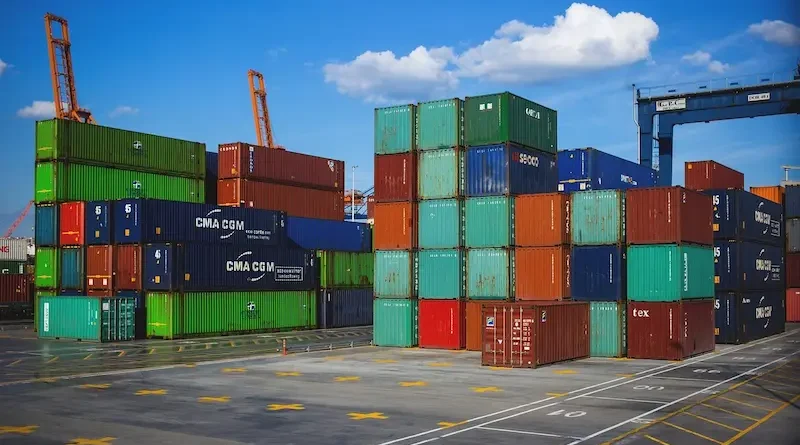How Shipping Containers Support Modern Business Operations
In today’s fast-paced global economy, businesses are constantly searching for ways to improve efficiency, cut costs, and stay adaptable. Whether you’re managing a growing retail brand, running a construction company, or operating a logistics service, the need for secure, flexible storage and transport solutions has never been greater. That’s where shipping containers come in.
Across Australia and beyond, more businesses are discovering the value of repurposing and owning their own containers to meet everyday operational needs. Shipping containers aren’t just for transporting goods across oceans anymore; they’ve evolved into versatile tools for storage, workspace solutions, and even pop-up commercial projects. Many companies have realized that investing in containers provides long-term convenience, flexibility, and savings, especially with providers who make the process simple and reliable.
With their sturdy construction, portability, and customizable design, shipping containers have become indispensable assets that support modern business operations in countless ways.
Why Businesses Choose to Invest in Their Own Shipping Containers
As companies grow, they often reach a stage where renting equipment or relying on third-party services no longer makes financial or operational sense. This is especially true for industries that require ongoing storage, transport, or workspace flexibility. Renting containers may seem convenient at first, but over time, the recurring costs and lack of customization options can become limiting. Many business owners begin looking for more sustainable, long-term solutions that offer better control and reliability without the constant need to renew contracts or depend on external providers.
As your business grows, finding dependable and affordable ways to manage storage, transport, or workspace needs becomes increasingly important. Renting can work for short-term use, but over time, it often limits flexibility and adds unnecessary costs. If you are planning to buy shipping containers for your business, you’ll have the freedom to use them for storing materials, moving goods, or setting up temporary workspaces. Owning your containers means you can make quick decisions, adjust to new projects, and manage operations without worrying about rental restrictions or extra fees.
When you purchase from a trusted supplier, you can choose from different sizes and conditions: new, used, or refurbished, based on your needs and budget. Reliable sellers also offer delivery, setup, and guidance to make the process easy. For growing companies, this flexibility is invaluable. Owning containers lets you expand storage, adjust to seasonal demands, or repurpose them into offices or retail spaces. It’s a durable, cost-efficient solution that helps businesses stay agile and self-sufficient.
The Role of Shipping Containers in Supply Chain Efficiency
Shipping containers have completely transformed how businesses manage their supply chains. Their standardized sizes, usually 20 or 40 feet, allow seamless movement across trucks, trains, and ships without needing to unload or repack goods. This intermodal compatibility reduces handling time, lowers transportation costs, and minimizes the risk of damage.
Containers also provide protection from harsh weather conditions, theft, and mishandling, ensuring that goods arrive safely and intact. In industries such as retail and manufacturing, where consistent supply and timely deliveries are crucial, containers play a central role in keeping operations running smoothly. By simplifying logistics, they make it easier for businesses to expand their reach and maintain customer satisfaction on a global scale.
Beyond Transportation: Shipping Containers as Versatile Business Assets
One of the biggest advantages of shipping containers is their flexibility. Beyond transportation, they’re widely used for on-site storage, temporary offices, mobile retail shops, and even pop-up cafés. For construction companies, containers serve as secure storage units or portable workstations at job sites. Retailers and entrepreneurs use them to create affordable, mobile outlets that can move with seasonal trends or event locations.
What makes containers especially appealing is their cost-effectiveness compared to building traditional structures. They’re sturdy, weather-resistant, and can be easily relocated as business needs evolve. In addition, repurposing containers supports sustainability by giving them a second life beyond shipping, reducing waste, and minimizing the demand for new construction materials.
Customization and Innovation in Container Use
Today’s shipping containers are far from one-size-fits-all. Businesses are increasingly customizing them to serve unique purposes. Some turn them into modern office spaces complete with insulation, electricity, and air conditioning. Others use them as pop-up restaurants, mobile clinics, or art studios. The adaptability of steel containers means they can be transformed into virtually anything with the right design and vision.
Technology has also expanded container functionality. Smart containers equipped with GPS tracking, temperature control, and security systems are revolutionizing logistics, especially for companies transporting sensitive or perishable goods. This ability to customize and innovate makes containers a practical foundation for a wide variety of business applications.
From logistics to creative architecture, shipping containers have become a cornerstone of modern business operations. They help companies stay flexible, reduce costs, and operate more sustainably, all while offering endless possibilities for customization.
If your business values efficiency, reliability, and long-term savings, investing in your own container can be a game-changer. Whether used for transport, storage, or innovation, shipping containers continue to shape the way companies around the world operate, grow, and succeed in a rapidly changing marketplace.

